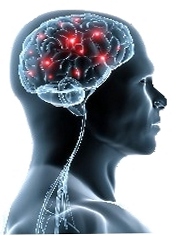
|
Management of Chronic Headache
Lawrence Robbins, MD
This article is based on
a lecture given by Dr.
Robbins, MD at the
September, 2008 meeting
of the AAPM
|
|
|
Title:
Author:
Date Posted:
Source:
|
Researchers Demonstrate How Placebo Effect Works in the Brain
Tor Wager, Professor of Psychology, Columbia University
Original Online Posting Date: July 30, 2007
Physorg.com
|
Placebo effect is a beneficial health outcome resulting from a personís anticipation that an intervention-procedure, or injection, for example-will help them.
Research has shown that empathy, emotion and motivation, and spirituality may be important factors for understanding the placebo effect. Understanding how the body heals itself will help with future research and treatment.
Conditioning and expectancy are two of the most accepted theories in placebo response research. For example, a doctorís visit where the process of being treated (conditioning) as well as the physicianís verbal suggestions that a treatment may be beneficial (expectancy) may promote a placebo response.
In an experiment conducted at Columbia University, scientists applied a placebo cream to volunteersí forearms; volunteers were told it was a pain reliever, though it was not. Next, a control cream was applied to a nearby area, and subjects were told it had no effect. A painfully hot stimulus, compared to a very hot cup of coffee, was then placed on both forearms and researchers used PET scans to measure and compare brain activity during each application. They found that the placebo treatment caused the brain to release more opioids, a chemical produced by the body to relieve pain.
In the first area which was treated with a placebo, opioid release occurred in an area in the brainstem used in neurosurgical interventions to control chronic pain. They also found opioid release in the orbit frontal cortex and anterior cingulate, parts of the cerebral cortex thought to be related to evaluating and orchestrating responses in the brain and body to deal with a perceived threat.
According to Columbia professor Tor Wager, "These results extend our knowledge of how beliefs and expectations affect the brainís neurochemistry and show that oneís mental response to a challenge can affect the brain and body in ways that are relevant to health. Understanding these interactions can pave the way for new treatments that are informed by knowledge of mind-body interactions."
Source: Columbia University
Original Article: Physorg.com
|

